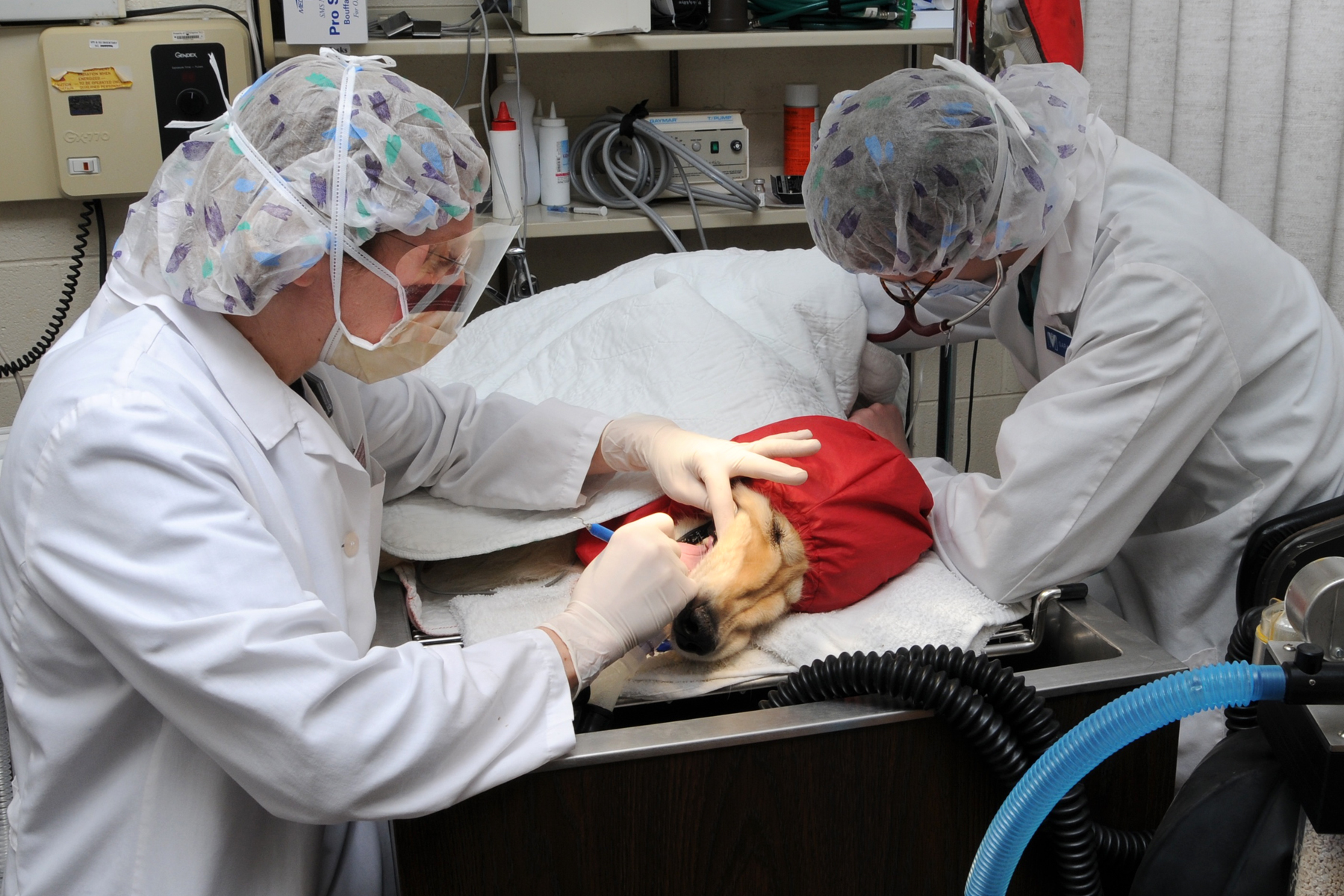Veterinary college celebrates Pet Dental Health Month

An estimated 70 percent of cats and 80 percent of dogs have some form of periodontal disease, or inflammation of the gums and supporting soft tissue structures surrounding the teeth. The Virginia-Maryland Regional College of Veterinary Medicine recognizes Pet Dental Health Month, celebrated every February, as an opportunity to teach pet owners the importance of proper dental hygiene in preventing disease.
“Pet dental health is vitally important to overall animal health, but it often does not receive as much attention as other areas,” said Dr. Bess Pierce, associate professor of community practice in the Department of Small Animal Clinical Sciences.
Pierce explained that the connection between periodontal disease and systemic illness related to chronic, low-grade oral inflammation makes it all the more important for cat and dog owners to seek regular dental care for their pets. “The cornerstone of oral health care for small animals is definitely the family practice veterinarian,” she added.
Veterinarians typically recommend the same oral health treatment for pets as medical doctors and dentists do for people: daily brushing. Pet owners can also use oral rinses, topical gels, and other products in conjunction with routine dental cleaning and treatment. Products bearing a seal of approval from the Veterinary Oral Health Council are evaluated for effectiveness and endorsed by several groups, including the American Veterinary Dental Society. Human dental products such as toothpaste and mouthwash should never be used on pets.
Some pets, and even some breeds, have unique health concerns that require veterinary intervention. For example, an estimated 60 percent of cats more than 6 years old suffer from tooth resorption, a painful condition in which the animal’s own immune system begins to treat the tooth like a foreign body. The incidence rate of tooth resorption increases with age.
“Cats and dogs will often not show signs of dental disease until it reaches an advanced stage,” Pierce said.
According to Pierce, cat and dog owners should treat broken and discolored teeth as red flags. In addition, dog owners should consider persistent bad breath a warning sign for periodontal disease.
The Veterinary Teaching Hospital’s Small Animal Community Practice, which offers preventive health to small animal clients within a 35-mile radius of Blacksburg, supports Pet Dental Health Month and offers a full range of services.




